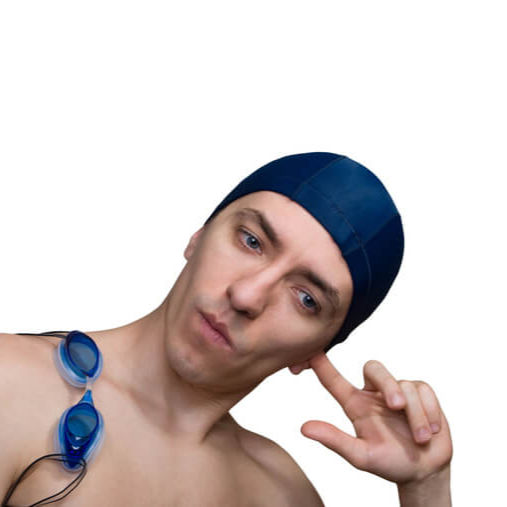What to Do When Water Enters Your Ear?
- Dr. Koralla Raja Meghanadh

- Aug 11, 2025
- 3 min read
Water entering your ear while swimming, showering, or during other activities is a common occurrence. While it might seem harmless, it can lead to irritation, infections, or other complications. This article explains what happens when water gets trapped in your ear, the right steps to take, and actions to avoid.

What Happens When Water Gets in Your Ear
When water gets into your ear, it can lead to immediate discomfort and irritation. Many instinctively try to remove it using fingers, cotton buds, or other objects. However, such actions can do more harm than good. The delicate wet skin inside the ear is highly susceptible to scratches, making it an easy target for bacteria and fungi. Injured skin is far more vulnerable to infections compared to healthy, intact skin.
Prolonged water exposure can weaken the ear canal's protective lining, increasing its vulnerability to bacteria and fungi. This often results in a condition called diffuse otitis externa.
Diffuse Otitis Externa
Diffuse otitis externa is an infection that affects the larger portion external ear canal. It can result from bacterial, fungal or both infections. Water entering the ear can bring bacteria and fungi present in the outer ear canal skin, which can lead to infections like:
Bacterial Otitis Externa
When bacteria cause the infection in the ear canal it is called bacteria otitis externa.
Otomycosis (Fungal Otitis Externa)
When fungus causes the infection, it will lead to otomycosis. Usually, fungi thrive in moist environments. So, when our ear is exposed to water, the fungus starts growing by using earwax as a nutrient source.
Swimmer's Ear (Chronic Otitis Externa)
If our ear is exposed to water for prolonged periods, it causes chronic otitis externa, also called swimmer’s ear. It is usually seen in the swimmers, so it is called a swimmer’s ear. Swimmer’s ear can be either bacterial, fungal, or both.
If otitis externa is mishandled or untreated, it may lead to eardrum rupture. Ruptures caused by fungal infections, such as otomycosis or swimmer’s ear, are more likely to require major eardrum repair surgery than those caused by bacterial infections alone.
Worsening Pre-existing conditions
If we already have a pre-existing infection like a perforated eardrum the water can worsen the infection.
If there is an existing condition, such as a perforated eardrum, water can directly enter the middle ear, introducing new infections or exacerbating existing ones.
What to Do When Water Enters Your Ear
Let It Dry Naturally
The best thing to do when water enters your ear is to allow it to dry on its own. Avoid inserting any objects into the ear canal to remove the water.
Seek Medical Attention If Necessary
If you experience symptoms like pain, itchiness, or discomfort, or if you notice a discharge from the ear, seek medical attention promptly. These could be signs of an infection that requires treatment.
Wear Earplugs When Swimming
If you frequently swim or participate in water activities, consider wearing earplugs to prevent water from entering the ear canal. This can help reduce the risk of water-related ear infections.
What Not to Do When Water Enters Your Ear
Don’t Scratch Your Ear
It may be tempting to scratch your ear due to the irritation, but this can worsen the situation. Scratching increases the risk of injury to the ear canal, which can invite bacteria or fungi to cause infections.
Avoid Inserting Objects into the Ear Canal
Never insert your fingers, cotton buds, or any sharp objects into your ear canal. These items can damage ear canal skin, leading to potential infections. They can also push the water deeper into the ear, making it more complicated.
Avoid Using Ear Drops Without a Prescription
Unless advised by a doctor, do not use antibiotic ear drops or any other medication to treat water in the ear. Misusing ear drops can sometimes cause more harm than good, especially if the eardrum is damaged.
Conclusion
Water in the ear may seem harmless, but improper handling can lead to serious issues, potentially requiring surgery. Let your ears dry naturally, avoid scratching or inserting objects, and consult a doctor if symptoms arise. Simple steps, like wearing earplugs during water activities, can help protect your ears and prevent infections.



Comments